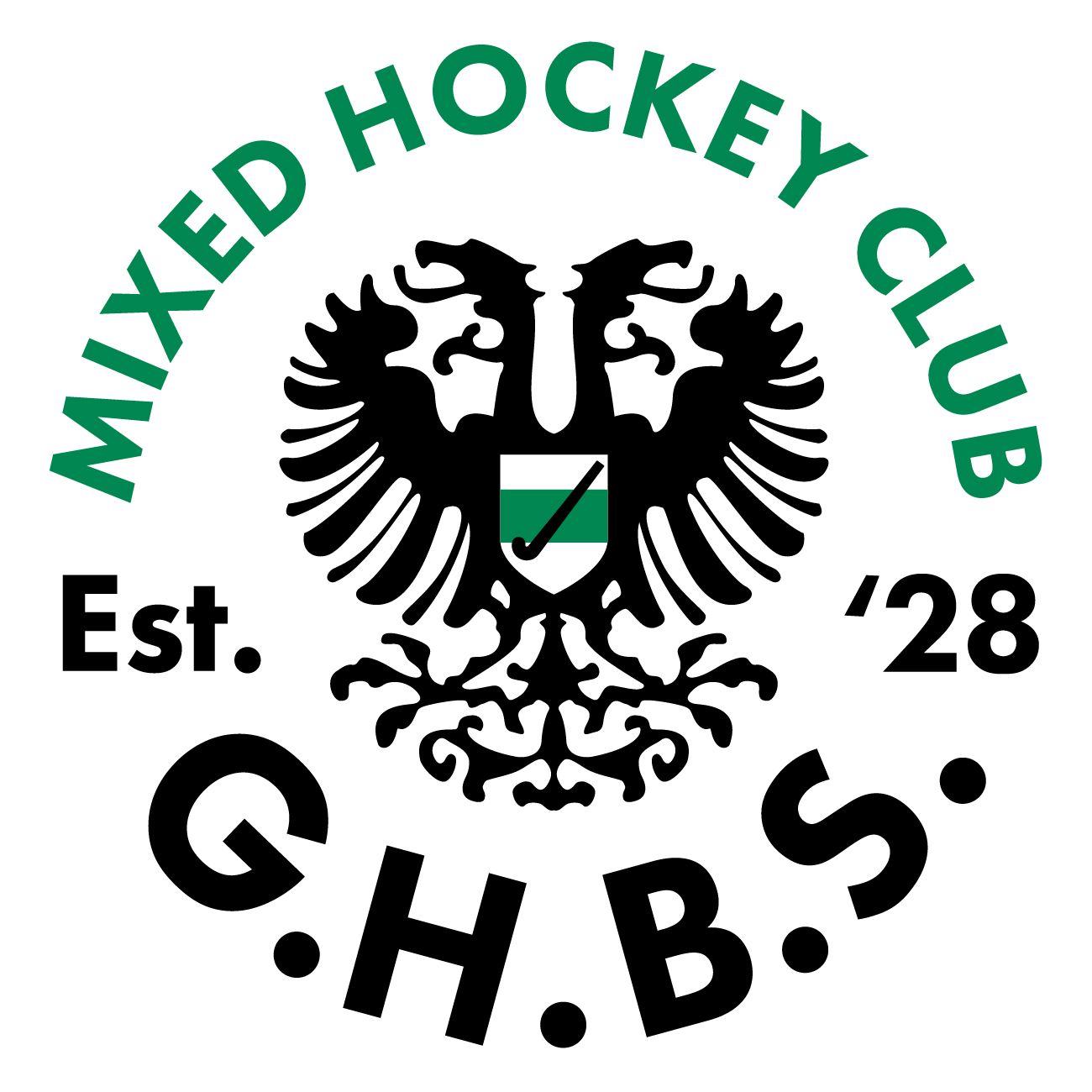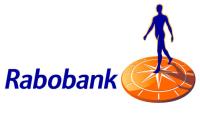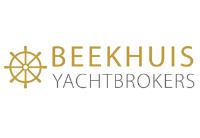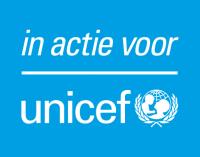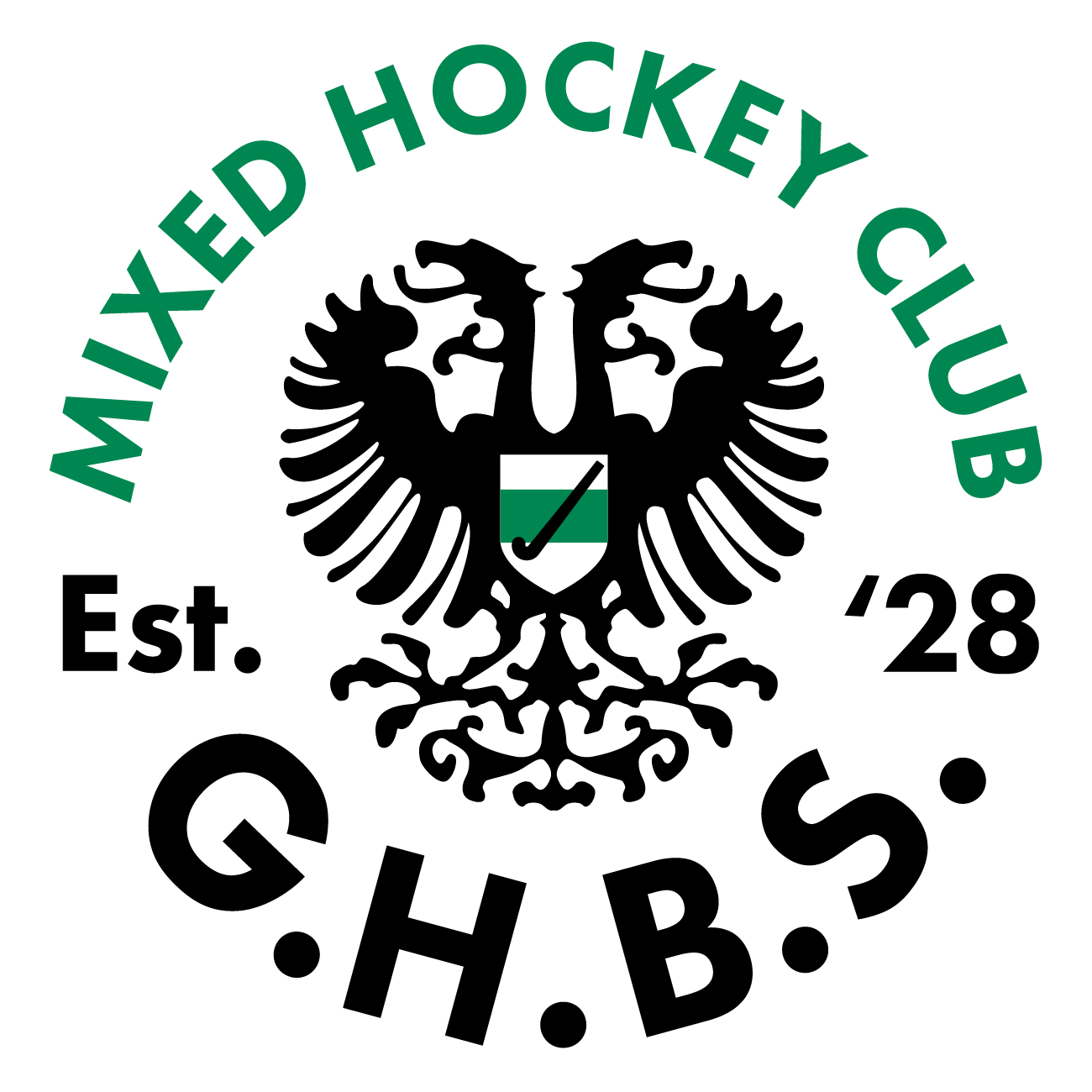ARBITRAGE
1. Introduction
Welcome to the GHBS refereeing page. Here you will find all the information about how we deal with refereeing within our club. From training new referees to scheduling matches and dealing with any challenges. Whether you are an experienced referee or just starting out, this page will provide you with the guidelines you need.
2. Arbitration within GHBS
Youth competitions
On Saturdays, the youth matches take place. The youngest youth matches are supervised by parents who act as game supervisors. This helps the children to get acquainted with the rules of hockey in an accessible way and contributes to a safe and pleasant sports environment. The older youth are refereed by youth members or seniors, which allows them to grow in their role within the club.
Senior competitions
On Sunday, the senior matches are up. It is the captains' responsibility to assign referees for these matches. This ensures a smooth organization and prevents misunderstandings on match day. The teams are assigned in good time by the arbitration committee so that captains have time to assign referees.
CS referees
For "top matches" that are not refereed by federation referees, we appoint CS referees. These referees are experienced and trained to lead matches at a higher level.
Parents as game leaders for the youngest youth
For the youngest youth teams, parents are asked to take on the role of game leader. This role is essential for guiding the children in their first steps on the hockey field. Parents are provided with simple instructions and are encouraged to help the children understand the basics of the game, without the pressure of formal refereeing.
3. Obligation for members to whistle
At GHBS we expect all members to actively contribute to the refereeing within the club. From the age of 15, every member is required to obtain a referee card. You do this by following the e-learning via the KNHB College and successfully completing the associated exam. Obtaining this card is mandatory, but even if you do not have the card yet, you are still required to referee matches.
Specifically for members who turn 15, they must complete the KNHB e-learning to obtain their CS card. This training provides them with the basic knowledge and skills required to act as a referee within our club (KNHB) (KNHB).
4. Training to become a club referee
The club referee training is designed to train members to whistle matches within their own club. This training consists of an online e-learning module, in which you encounter practical situations and learn to apply the rules of the game. You prepare for the exam via multiple-choice questions, which you also do online.
After obtaining your referee card, you will start refereeing matches. Unfortunately, we cannot offer guidance to everyone who is refereeing for the first time, but if you need this, you can indicate it to your team manager. He can try to have an experienced referee from your team present to support you. During refereeing, the emphasis is mainly on clearly applying the basic rules such as shooting, chopping, and dangerous situations (KNHB).
Before you referee your first match (or if you haven't refereed for a while), it is useful to watch this video with refereeing tips for the novice club referee: https://www.youtube.com/watch?v=7ISjuJIn5NY
5. Competition format and responsibilities
How are matches scheduled?
Captains (for seniors) and team managers (for juniors) are responsible for entering referees via the My GHBS environment (LISA Team). This can be done via the GHBS website and must be completed no later than one week before the match. It is essential that each team member takes responsibility for refereeing the assigned matches.
Although we always try to schedule teams in a timely manner, changes can always occur in the planning. Also at the beginning of the season and when reassignments take place, there may be less time between the assignment and the matches. So always keep an eye on whether your (team) is scheduled to whistle!
What to do if you can't?
If you are unable to whistle on the assigned day, it is your responsibility to arrange a replacement in time. Try this first within your own team. If that does not work, you can "offer" your service via the Facebook group. It is common to ask for a few tens of euros for this.
If you exchange or sell your service, you must report this to the arbitration committee (arbitrage@ghbs.nl). As long as you are scheduled, you are responsible (and you will also receive the fine if your replacement does not show up).
If there is no referee
Sometimes something goes wrong and there are teams but no referees. Before the match you can check if there are referees assigned and just before the match you can try to contact these people. But if that doesn't work you still have to play hockey. Ask in the clubhouse or from the team that played before you if someone would be so kind. Otherwise you have to improvise and whistle yourself. There is no point in calling the arbitration committee at that moment, these volunteers have no solution. You can report it by email after the match and we will find out what went wrong and whether the fines scheme applies.
What to do if whistling doesn't go well?
If you encounter problems while refereeing, for example because you find a situation difficult or do not know how to act, consult with your fellow referee and consult with the captains and coaches of the playing teams. If you want to talk about your match afterwards or if something unpleasant has happened, you can report this to the arbitration committee.
Completing the DWF
Referees are required to check before the match whether both teams have completed their DWF (digital match form). This is a crucial step to ensure that the match is played in a correct and organized manner. After the match, the referees must complete and finalize the DWF. Failure to comply with this obligation may result in fines for the teams or referees involved. You can open the DWF from the hockey.nl app or the LISA app or via the link that will be sent to you before the match. https://dwf.hockeyweerelt.nl/matches
6. Need help whistling?
If your team needs help with assigning referees or if there are specific challenges, you can always contact our arbitration committee via arbitrage@ghbs.nl. They are ready to support you.
7. The career of a referee
At GHBS we encourage referees to continually improve their skills. As with most things in life, the better you get at them, the more fun they become. Preparing for a match well and refereeing regularly will help you to become a better referee. This is important because good refereeing contributes to the atmosphere and enjoyment on the pitch.
Therefore, check this page regularly for useful tips and resources to improve your whistling skills (KNHB) (KNHB).
If you notice that you really enjoy refereeing and you want to develop yourself further, you can consider growing to CS or even federation referee. This offers you the opportunity to referee at higher levels and further hone your skills. Are you interested in this? Please indicate this to the arbitration committee, they can guide you further in this process.
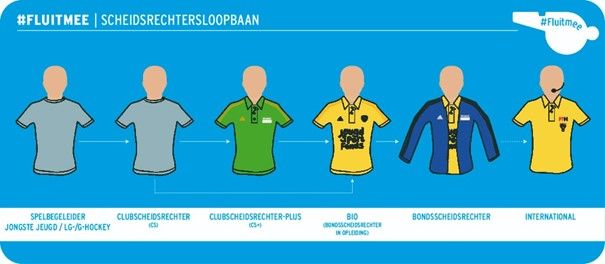
8. Importance of good whistling
A good referee contributes to a fair and sporting match. It is important that referees know the rules of the game and apply them consistently. This not only ensures a pleasant match experience for all players, but also strengthens sportsmanship and respect within the club.
9. Rules and resources
For a complete overview of the rules of the game and other relevant information, please visit the following pages:
- KNHB Rules of the Game
- Hockey.nl Rules
- The referee's basic gestures: https://www.youtube.com/watch?v=2eOtzC9uefs
10. Fines for no-shows
At GHBS we operate a fines system to ensure that referees are present at the correct time and place:
- In case of no-show, a fine of €50 will be charged per referee.
- In case of repeated failure to show up on days, the fine will be increased to €75 per referee.
You will find the full regulations in our House Rules.
11. Contact information
Do you have any questions or would you like more information? Please contact our arbitration committee via arbitrage@ghbs.nl. They are always ready to help you.
12. Finally: the 5 golden rules:
#1 - Support all teams in a positive way
On and off the field we support all our teams positively. Nobody likes to be shouted at, not even referees. Of course, complimenting each other is allowed!
#2 - Questions are allowed, as long as they are asked in a normal manner
If you have a question for the referee and you ask it in a normal way, the referee will always (depending on the timing and the game situation) try to answer your question.
#3 - We take action against misconduct
Expressing your displeasure about a referee's decision is not sporting. Making an unpleasant remark, throwing away gestures, clapping conspicuously for a certain decision or storming a referee (crowding) will therefore be punished immediately with a green card.
#4 – Everyone has a role model function
Players, coaches and referees all have an exemplary function on and around the field. Be aware of this before, during and after the game. Talk to each other about unsportsmanlike behavior.
#5 – Be open to each other
Through good contact before, during and after the match between teams, referees and supporters, we keep hockey the most fun and sporting sport. Giving feedback and helping each other is always allowed, as long as this is done constructively! We do hockey together.


